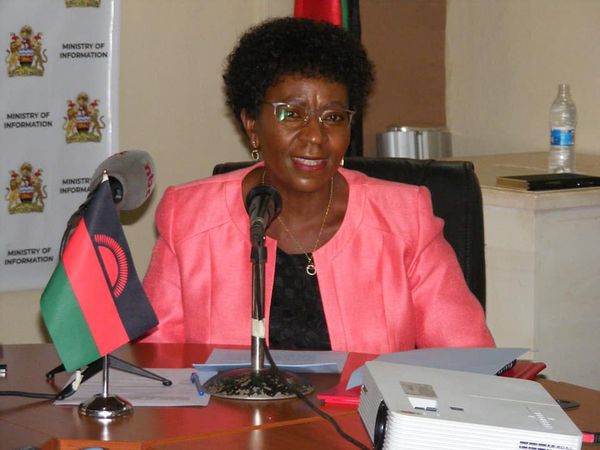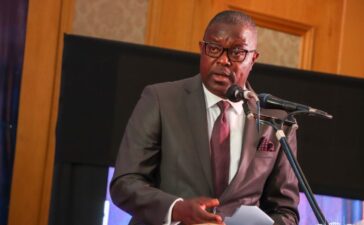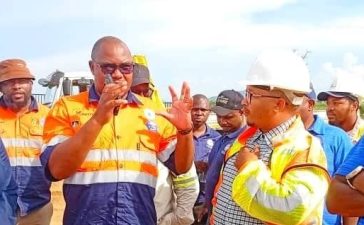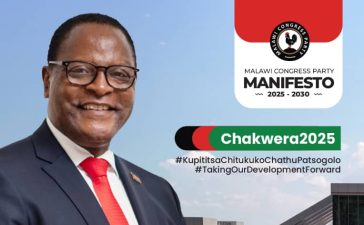BY BLAIR MHONE
Minister of Education Agnes Nyalonje says education is a key ingredient for the country’s socio-economic development and forms as a major plank in the Malawi 2063 Agenda.
The minister made the remarks on Wednesday during Government Meets the Press in Lilongwe organized by Minister of Information Gospel Kazako to unpack the State of the Nation Address (SONA) made by President Lazarus Chakera earlier this year when he opened the budget sitting of parliament.
The minister, in her speech, outlined that delivery of quality education has been earmarked for Malawi to achieve its agenda 2063, where human capital development is emphasized as a prerequisite for sustainable socio-economic development.
“If any nation aspires for quality infrastructure, quality administration, a quality justice system, quality public services, a sound economy, and a wholesome environment, such a nation must invest in quality Education at all levels.
“We, therefore, approach our work mindful of the enormity of the national responsibility that we bear for the future of our people. Malawi’s success and competitiveness, and its realization of the Malawi 2063, depends on the provision of quality Education,” she said.
Nyalonje said the Tonse Administration commitment to improve quality of education is also clearly shown in this year’s financial statement recently presented by Minister of Finance Sosten Gwengwe where the Education Sector has been allocated a major proportion of the budget, amounting to MK462.2 billion in the 2022/23 financial year up from a revised Education Sector budget of MK340.5 billion in the 2021/22 financial year.
On expanding infrastructure, Nyalonje said her ministry is seeking both to increase the number of classrooms to reduce class sizes and to build new schools so that the distance to schools is reduced.
“In the 2021/22 fiscal year, my Ministry has constructed 851 classroom blocks and in the coming 2022/23 fiscal year, my Ministry will construct 3,514 classrooms and will complete the construction of 12 New Urban Primary Schools,” she said
She also said the government through her ministry wants to establish a qualified teacher to student ratio of 1:60.
“In the 2021/22 fiscal year my Ministry recruited 2,200 primary school teachers and 3,270 auxiliary teachers. In the 2022/23 FY my Ministry will recruit 6,900 primary school teachers, 3,000 auxiliary teachers and 230 inspectors.
“In addition, we are constructing three Teacher Training Colleges in Rumphi, Mchinji and Chikwawa districts. The capacity of each of these is 600 bed spaces and the output from these colleges will reduce the student to qualified teacher ratio and improve the quality of education for our primary schools. Construction of the three TTCs started in January, 2018. My Ministry’s target is to have all three TTCs completed by August, 2022,” added Nyalonje.
Meanwhile Nyalonje has also disclosed that the government is introducing Compulsory Primary Education as stipulated in the Tonse Administration Manifesto.
She said the move will mean Malawi moving from 89% enrollment in primary education to 100% hence making basic education compulsory for all children.
“The Tonse Alliance Government, under the leadership of His Excellency Dr Lazarus McCarthy Chakwera, our State President, is committed to improve our Education System so that we can compete and meet international quality standards.
“This is essential for human capital development and the realization of our socio-economic development as outlined in Malawi 2063. It is also essential if we are to give every child the opportunity to realize their God-given potential and provide them with opportunities to avoid a life of poverty.
“The commitment to implement Compulsory Primary Education, expressed by His Excellency the President in the SONA, is an essential first step along the road to 2063 and we seek the engagement and support of all Malawians to help make high quality Basic Education a reality for all our children,” said Nyalonje.
She has since disclosed that alignment of international legal instruments related to provision of compulsory primary education, further curriculum development to improve literacy and numeracy of learners, creation of Teachers Council to enhance the professional standing, status and quality of teachers among others are the strategic activities already lined up for the smooth implementation for compulsory basic education.
On his part, Minister of Information and Digitalization, Gospel Kazako, said has high expectations that compulsory education will be achieved.
He said the government will provide required resources so that CPE is implemented.













